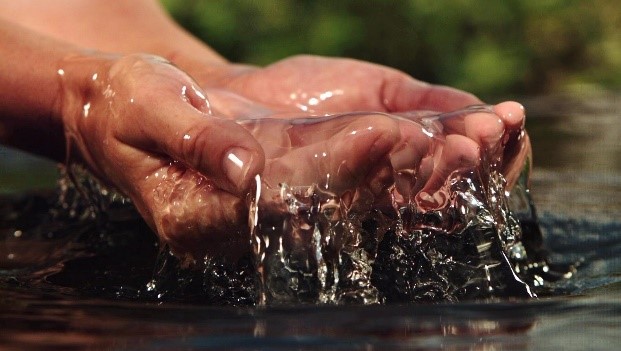In Flagstaff, Arizona, the normal sound of water rushing out of a tap means something different than it does in Ohio. When I was seventeen years old, my aunt and uncle took my cousin and I on a trip to the Grand Canyon. Before making the journey across the desert to the Canyon, we spent a few days staying with friends in Flagstaff. I remember the way my aunt hovered around the sink when I would wash my hands or brush my teeth. She was quick to point out when I should turn off the tap and very constant in her reminders. Despite my teenaged irritation with being monitored this way, my aunt’s concern was well-grounded – in Flagstaff they had serious water restrictions and the price of water was very high. Not many people in Ohio are used to turning off the water while soaping up in the shower, but this is what we were expected to do in Flagstaff.
It’s so easy to take water for granted, especially when you live in a place with streams and rivers everywhere like Ohio. All the ways we normally use water – to flush toilets, to clean surfaces, to bathe, etc. – are so ingrained in our daily activities that we are able to forget the enormous influence of water on our well-being and quality of life. Even a few hours without water service in our homes prompts us to make all sorts of new decisions as we alter normal routines.
There are few things that tie all people together as much as their common need to access clean water. The universality of this basic human need goes beyond politics, nationality, religion, race, gender, educational level, income level, ancestry, and pretty much any other form of group divisions. No matter which human group you identify with, our individual and collective need for clean water supersedes all other concepts that divide us into groups. For most people, our local infrastructure supplies us with water that we trust is clean. But how do you really know about the quality of your water?
With recent changes to the Clean Water Act, the importance of volunteer monitoring has never been so great. Large regulatory agencies may not have the resources or personnel needed to perform comprehensive, regular monitoring. And with the loss of federal protections for smaller streams & bodies of water, the fate of water quality in many localities is left to smaller and more local agencies such as states, municipalities and watershed groups.
If you care about clean water, there has never been a better time to take direct action than now. MBI is now offering citizen science courses – a great way to meet other people who also care about clean water! So check out the Citizen Science page on our website and register now for a course. You can make a difference by connecting with your local watershed group and helping to monitor streams in your area.

